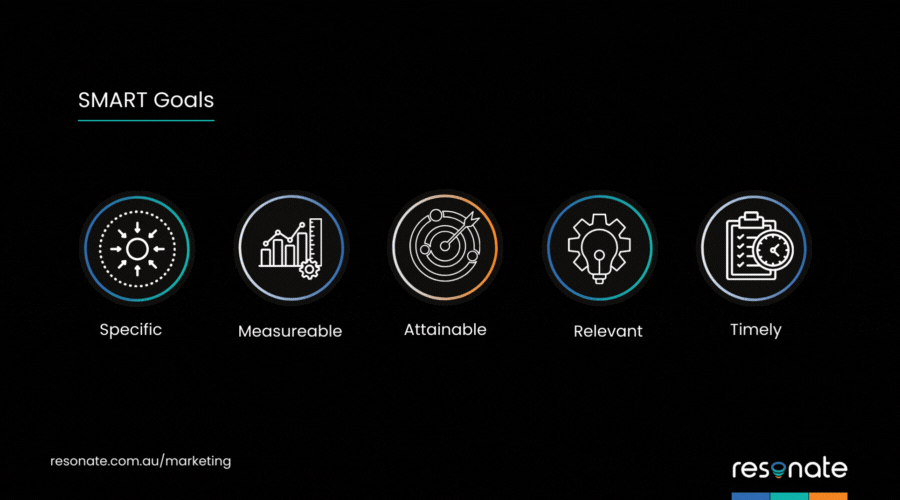Partnerships have become integral to modern businesses, regardless of their size or industry. Yet, managing complex business partnerships can be challenging, requiring organisations to establish clear communication, plan carefully, and understand the principles underpinning successful collaborations.
In this blog, I will cover the fundamental principles that can help you manage complex partnerships effectively. Whether you are a small business owner looking to establish strategic partnerships or a seasoned executive managing complex collaborations, this blog will provide valuable insights and strategies to help you build and maintain strong, mutually beneficial partnerships that drive growth and success for your organisation.
1. Build a shared definition and vision of success
Imagine embarking on a journey without a clear destination in mind. You might enjoy the scenery along the way, but ultimately, you will not know if you have succeeded or failed. The same principle applies to business partnerships. You set the relationship up for failure without a clear definition of success.
You must have a shared definition and vision of success when entering a partnership. While profitability may seem like the obvious goal, it is essential to identify each party’s vision and idea of success and work towards harmonising those visions.
Managing business partnerships between organisations can be incredibly complex, as each company has goals, processes, and a vision. It is crucial to have complete transparency and honesty about the desired outcomes without making assumptions about what each partner wants from the partnership. Both parties need to agree on what they want to achieve. It is not enough to have a vague idea of success; you need to be specific.

2. Discuss the work each business will complete
A lack of shared responsibility can lead to failure in any business partnership, so each partner must contribute equally to avoid feelings of inequity and resentment. A perception of unfairness can quickly become the downfall of your partnership.
To prevent this, you must clearly define the roles and responsibilities of each business. Establish specific processes and procedures for executing each partner’s assigned tasks to minimise friction resulting from unclear roles.
Commitment is crucial to a successful long-term partnership, especially during challenging periods. Even in difficult times, partners should respect the terms of the agreement and fulfil their obligations. Therefore, it is essential to outline penalties alongside the roles to have measures in place should a partner fail to execute their responsibilities.

3. Conduct your due diligence
You must not overlook the necessary due diligence on your potential partner. Remember that your partner will likely conduct their own due diligence on you, so it is in your best interest to do the same.
The partnership type will determine the information required for the due diligence exercise. For instance, a financial partnership may necessitate an investigation into your partner’s financial statements and credit. In contrast, an intellectual property partnership may require an assessment of the value and ownership of its intellectual property assets.
I recommend prioritising transparency throughout the due diligence process. There is no need to keep it a secret, as due diligence is a regular business activity. Being open about what you are examining and your findings can foster trust and transparency between partners, laying a solid foundation for the partnership. Your partner will appreciate your diligence and likely reciprocate by sharing their findings about your organisation.

4. Create your measurements for success
After defining success and assigning roles in the partnership, the next step is establishing a means of measuring success. Although increased profits may be the obvious benchmark, assessing profitability in the short term can be challenging. Tracking incremental gains attributed to the partnership’s efforts can be difficult without suitable systems.
To establish a reliable method of measuring success in your partnership, you must create practical, quantifiable goals that can serve as benchmarks when assessing performance. You can use the SMART goals method to ensure they are specific, measurable, achievable, relevant and time-bound. These benchmarks will also assist in determining equitable compensation, bonuses, and incentives for each partner.
You must obtain a commitment from all strategic partners to adopt the partnership’s methods for measuring success. So, everyone is informed of their performance standards and committed to meeting them.
Furthermore, reliable indicators must be in place to detect underperforming partners before it is too late. This necessitates the establishment of protocols for systematically addressing underperformance from partners without jeopardising the partnership.

5. Decide how you will end the business partnership
Every good thing eventually ends, and your partnership is no exception. When the partnership has achieved its goals or is no longer advantageous for both parties, it is impractical to persist in allocating time and resources to manage it.
It is best to have this discussion before entering into the partnership. If the partnership is time-sensitive, both parties should agree on an expiration date and incorporate it into the contract. However, if the partnership is potentially indefinite, the agreement can include clauses allowing annual meetings to review the partnership’s performance and terms. Based on performance, the partners can continue, make adjustments, or terminate it if it no longer benefits both parties.
Terminating strategic business partnerships can be costly, so your organisation should establish contingencies if your strategic partner ends the partnership. You should have a cost-sharing policy that fairly divides termination costs without jeopardising the existence of either organisation.

Conclusion
Managing complex business partnerships can be challenging, but following these five principles can increase your chances of success. By building a shared definition and vision of success, discussing the specific work each business will complete, conducting thorough due diligence, creating measurements for success, and deciding how to end the partnership, you can build strong and productive partnerships that deliver results.
Resonate can guide you in managing complex business partnerships
We help B2B business leaders define or refine their strategies. We provide strategic advice and consulting on various facets of strategy; business strategy, corporate strategy, product/service strategy, functional strategy, go-to-market, competitive strategy, pricing strategy, etc.
If you are starting a new role as a business leader, or you have been with the business for a while, and you need to hone your competitive strategy, let’s connect, let’s talk. We have extensive experience in guiding business leaders on competitive strategies. Visit our Strategy page for more information.
Related blogs
Optimising B2B partnerships for long-term success




